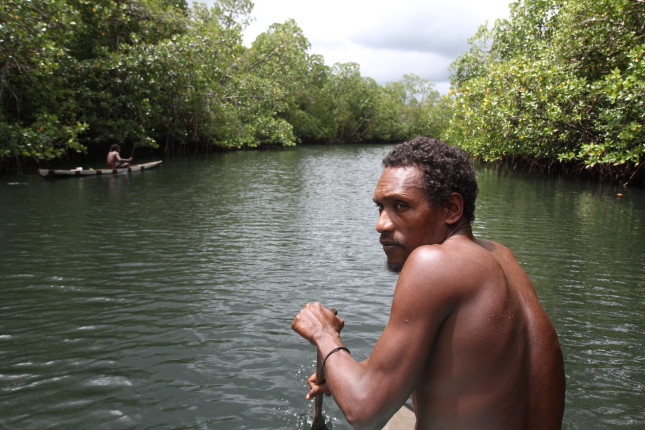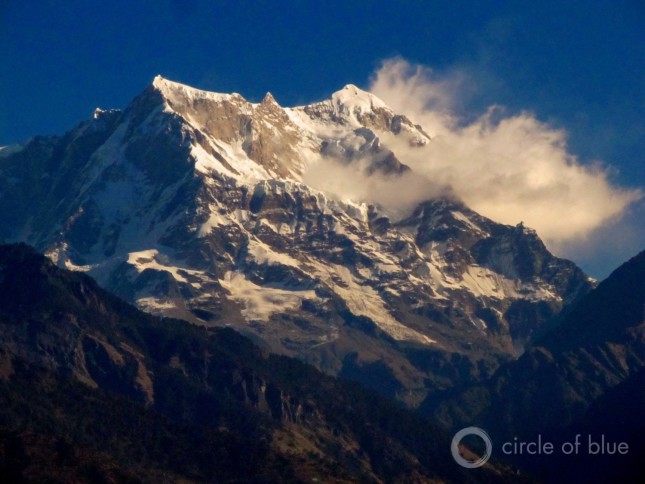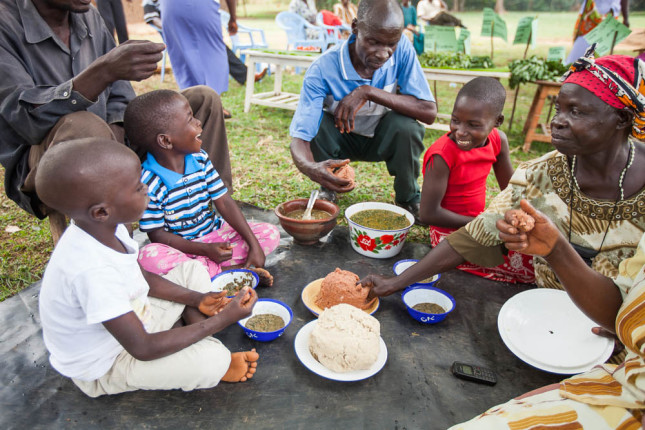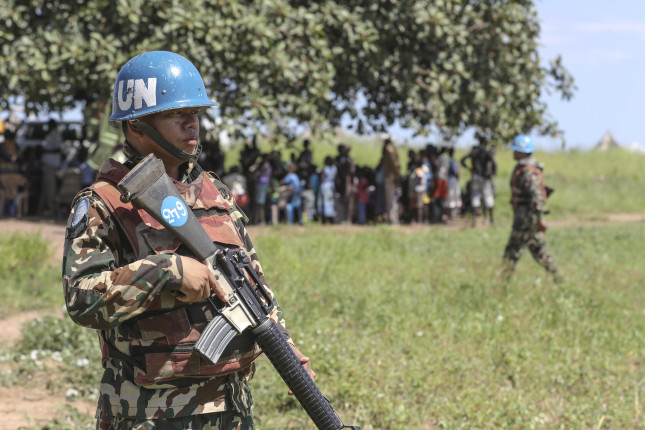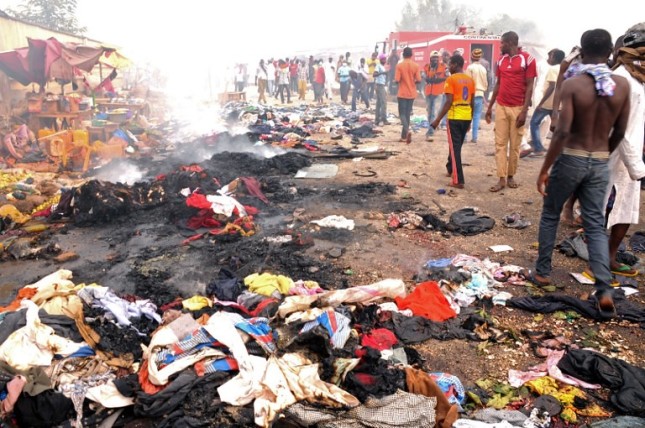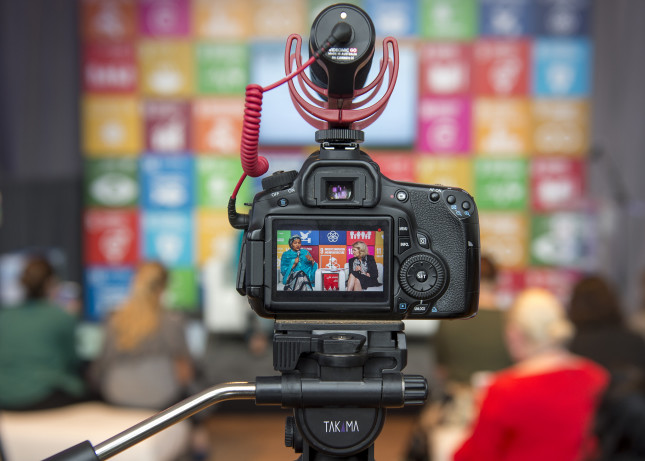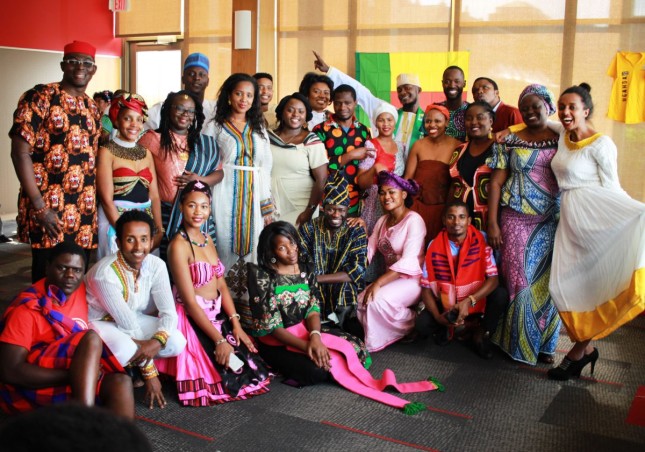-
In Australia, Echoes of Past, Glimpses of Future As Country Braces for Hot, Dry Summer
›
Water is so scarce these days in Murrurundi, a drought-tested town in the northern reaches of New South Wales, that it arrives by truck.
Murrurundi Dam, an off-channel reservoir that draws from the Pages River, is functionally dry. An emergency well provides a little local water, but half of the small community’s supply is now trucked in.
“I’ve never seen the Pages River this low,” Daele Healy, who has lived in town for 15 years, told Circle of Blue. “There’s just no water visible at all. Not even little ponds.”
-
To Avoid Conflict, Responses to Climate Change in Oceania Must Heed Customary Actors and Institutions
›
Considering how vulnerable Pacific Island countries (PIC) are to the conflict-prone effects of climate change, it is surprising that so little attention has been focused on the region. To address the conflict potential of the effects of climate change, as well as of adaptation and mitigation policies and technologies, policymakers must draw upon research related to the climate change-conflict nexus that thus far have been widely ignored or underestimated. These include cultural and spiritual aspects, indigenous knowledge, and indigenous ways of adapting to climate change. To fill gaps in knowledge, more granular ethnographic research should explore the complexity of local contexts in Oceania. Non-Western, non-anthropocentric concepts warrant particular attention.
-
Mountain Regions, ‘Taking the Heat,’ Face Growing Hazards As Ice Melts, UN Climate Panel Warns
›
Rising concentrations of heat-trapping greenhouse gases in the atmosphere are reshaping the world from the top down, according to a special report on the world’s oceans and frozen regions from the United Nations climate panel.
-
Climate Change Will Likely Influence Fertility Rates
›
Many of climate change’s demographic impacts—including those on migration, health, and mortality—are well known. But will climate change also affect population growth? So far, relatively little is known about whether and how the reproductive goals and behaviors of women and their partners may be influenced by a changing climate. However, a number of recent empirical studies offer evidence of such effects, underscoring the multidimensional ways that households modify their structure and activities in response to changing environmental conditions. The effects also highlight the complex and interactive linkages between population growth rates and climate change.
-
Is Environmental Peacebuilding the Answer to South Sudan’s Conflict?
›
September 12, 2019 marks one year since South Sudan’s President Salva Kiir and former Vice President-turned-opposition leader Riek Machar signed a new peace agreement. The human and environmental cost of the five-year war it ended has been staggering. Women and girls have often borne the brunt of the violence. Fighting and displacement have also placed tremendous pressure on the country’s abundant wildlife and natural resources. Militarized cattle raiding and competition over access to traditional grazing lands threaten the country’s tenuous stability. Gender-sensitive environmental peacebuilding promises to be one of the strategies needed to resolve these multiple challenges.
-
How Terrorists Leverage Climate Change
›
Policymakers and emergency managers tend to build a conceptual wall between natural hazards and terrorism. The causes of—and remedies for—these two kinds of disasters are seen as separate and distinct. But, in the era of climate change, the wall between the two is crumbling.
-
Achieving the SDGs: Three New UN Reports Call for Reoriented Policy Priorities
›
This summer, United Nations agencies published three reports that offer a sobering assessment of the current state of international security and development, focusing on multidimensional poverty, hunger, and forcible displacement. As some countries succeed in steadily improving the living conditions of their most vulnerable populations, others have struggled to overcome sustained episodes of political instability and violent conflict. Together, the reports affirm the urgency with which the international community must reorient its policy priorities and take action to achieve the Sustainable Development Goals (SDGs) by 2030.
-
To Accelerate Economic Growth, Uganda Should Prioritize Young People’s Health Care
›
Even though it has always been said that young people are the future of society, it is important to note that we are very much present. We are ready to thrive and become productive adults. Unfortunately, many adolescents and young people are robbed of their potential. We still face a high risk of unplanned pregnancy, sexually transmitted infections, teenage pregnancy, early child bearing, unsafe abortions, and dropping out of school.
Showing posts from category Guest Contributor.


